I’ve been reading The 1619 Project – a historical reflection of our American history which stresses the significance of Black people in this country and our long shadow in that history. I recommend it to anyone who is interested in learning more about what happened, why we are who we are in this country and what we can do to be better.
Black History Month is a time to celebrate Americans who have contributed immensely to our present culture and yet are still struggling to be recognized as valuable citizens of these United States. This is the third reconstruction era of our 400 years as Black people in this country, and it is critical that we all work together to maintain the right to vote for all Americans, to support better housing and healthcare for the vulnerable and people of color and to be vocal about anti-Black racism in our community and in our country.
I am proud that we have begun our work together in all of these areas. Residents and fellows, faculty and staff have risen to the challenge. The Network of Underrepresented Residents and Fellows (NURF), the Committee on Minority Faculty Affairs and the Equity, Diversity and Inclusion Graduate Medical Education Subcommittee have all been active in planning and dedicated to this work. There is a lot to do, which Dr. Daniel Cabrera reflects upon in his message to our GME community.
I have invited Dr. Cabrera to be the guest writer for the DIO Blog this month, which is timely and relevant. Let’s not forget that this is the opportunity for us all to make a big difference.
Byron Joyner, MD, MPA
Vice Dean for GME and DIO
Dear Colleagues,

Daniel Cabrera, MD
February is a time of year usually filled with a great deal of introspection and reflection of what matters most in my world. This is probably because it’s my birth month and birthdays seem to be a good day to examine a multitude of questions. What am I doing with my life? Are we going to be ok? Do my work clothes still fit after months of working in scrubs or wearing pajama bottoms for endless Zoom meetings? Ultimately, I have gratitude for the little and big things creating fulfillment in my own life while recognizing the larger issues around us that create continuous challenges as we roll into the early part of 2022.
One of the things I am grateful for is my role as the chair of GME’s Equity, Diversity, & Inclusion (EDI) Subcommittee. I am honored to serve alongside a diverse group of committee members with a unified vision to make UW GME better. The committee’s work continues because there is no shortage of areas needing change. The goal is to ensure that GME programs are provided with the resources and tools to recruit and retain diverse trainees, make the training environment more inclusive for historically excluded and minoritized housestaff, and educate all trainees on integrating health equity into the care of patients. In the coming months, be on the lookout for new resources on the GME website that will support these goals.
As I reflect on our diverse trainees, I can’t help but be concerned about their wellbeing during these difficult times. This latest wave of Omicron, which appears to be improving, has been especially hard on our residents and fellows across the UW. And for those whose identities intersect with backgrounds not usually welcomed in medicine, the impacts may be far greater. I’ve heard anecdotally from BIPOC trainees about the worsening isolation that comes during periods like this, especially for folks who lack community during training. So, what are we to do?
I believe that Black History Month is the perfect time to reflect upon and recommit to the importance of EDI. Black history is sometimes referred to as America’s history. In thinking about this statement rather than remembering, reflecting, and celebrating the contributions of Black folk during the shortest month of the year, we should work to do this all year round. Integration rather than separation allows for sustainable change. And by that same token, EDI is not just the work of a few or the work of “minorities.” EDI is everyone’s responsibility. It is a WE issue not a ME issue.
As the cloud of COVID clears I encourage everyone in the GME community to integrate the goals of our EDI subcommittee into their regular practice. Let’s get back to the practice of checking in on each other while recognizing that not everyone experiences a situation the same because of their identity. Let’s find ways to provide equitable care for our patients. Let’s find ways to diversify UW Medicine even more. For those who have yet to take part in EDI, don’t worry, our table has a lot of room. I am confident that on my birthday next year I will look back and think “Look at how we have all made UW GME better.”
Daniel Cabrera, MD, MPH
Clinical Associate Professor, Department of Medicine
